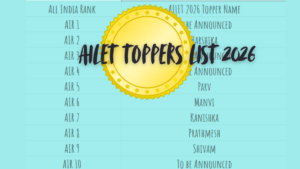Many students find it difficult about when to study so that they can lean better. Almost all the students, either preparing for the board exams or competitive exams, they wonder about what is the best time to study? Studying at the best time help students to retain the concepts for a longer time. So, studying at the correct time period becomes even more important in this competitive world. Go through this article to know about What is the Best Time to Study?
What is the Best Time to Study?
Have you ever pondered on What is the best time to study? We all want to improve our efficiency as students and achieve our academic goals. The timing of our study sessions is important and can greatly impact our ability to learn, so it’s crucial for us to figure out the optimal study time. This blog will concentrate on determining the most suitable time for you to study. No matter if you prefer staying up late or waking up early, you will surely discover your most productive times!.
What is the Best Time to Study: Morning, Afternoon or Night?
There is no one answer to the question: what is the best time to study? It is because, the peak concentration period vary from learners to learners. While some may find it easy to study in the morning with full concentration, some may achieve the same in the afternoon or in the late night. So, one should always try to find their right time for study and use those hours fully to obtain the desired goal. You must carefully assemble that time for optimal performance.
What is the Best Time to Study According to Scientists
Research and scientists suggest that the brain is most alert and receptive to learning at specific times: 10:00 am, 2:00 pm, 4:00 pm, and 10:00 pm. Nevertheless, in order to achieve deep focus and concentration, it is important to study during the hours of 4:00 am to 7:00 am. Therefore, if you want advice on balancing work with studying, it is crucial to schedule your time appropriately.
Young adults may not completely follow this rule, so it’s crucial to remember a few key points. Scientists believe that the circadian rhythms of individuals aged 14 to 24 are delayed by about 2-3 hours compared to young children or mature adults. For students in this age group, the optimal study time may be slightly later.
Best Time to Study: Day or Night?
There isn’t a universal best time for studying because each person’s peak productivity, energy levels, familiarity with their environment, etc., vary. Different people have different preferences for when they study best, whether it’s in the morning, afternoon, or at night. This affects the benefits of studying at different times and the ideal time for studying and memorization.
Rather, it is important for students to make a habit of studying regularly for long hours whenever you want. Students should make sure that they choose a quiet place free from distraction for their study. Taking a proper sleep of 7 to 8 hours is also crucial for the effective study cycle. Let us now understand the benefits of studying during different hours of the day below.
What is the Best Time to Study: Morning Learners
Is your brain operating at its peak in the morning? If that’s the case, you are certainly someone who learns best in the morning. Several students can concentrate effectively in the mornings following a restful night’s sleep. They have a greater understanding of concepts, are more efficient at solving math problems, and have a strong memory. Students find it to be the optimal time for studying due to feeling more energized and rejuvenated in the morning.
Benefits of Studying in the Morning
Many individuals believe that studying in the morning is most effective, since our brains are typically the most alert after a good night’s rest and breakfast. Discover why mornings are the ideal time for studying and remembering.
- Being in the sun is believed to enhance mental acuity more than staying in the dark.
- The early morning light is beneficial for your eyes as it helps to strengthen both your retinas and your eye muscles.
- Establishing a morning study routine that matches your circadian rhythm could help in maintaining your sleep cycle.
Best Time to Study in Afternoon
Indeed, a few students are most energetic in the daytime, in contrast to many of us who typically feel fatigued and drowsy following a satisfying lunch in the afternoon. Numerous students are able to seamlessly incorporate knowledge previously acquired within this timeframe. Numerous research indicates that the most optimal hours for studying are from 2 pm to 5 pm. Their ability to think critically and analyze situations is most effective at this time as well.
Benefits of Studying in the Afternoon
The afternoon is the optimal study time for some individuals. Now, let’s examine some advantages of studying in afternoon below.
- Typically, afternoons are calmer, allowing students to concentrate more effectively without interruption.
- Students have the option to either read in the library after class or to study in groups.
- Students may also be able to receive assistance from tutors and teachers in order to resolve any uncertainties.
Is Nighttime the Best Time to Study?
There are the individuals who are most productive at night and are considered night owls. Similar to the afternoon, the nighttime is also calm, allowing students to concentrate and remember what they have learned throughout the day. Additionally, it is thought that resting after learning assists in memory retention.
Benefits of Studying in Night
Some students have more energy later in the day. Therefore, it is more beneficial to read and study in the evening or at night. Now is the optimal moment to learn and commit things to memory since there are fewer interruptions, and everyone is currently asleep.
If you like studying in the night, you can experiment with different strategies to help you stay alert and determine the optimal study time for yourself. Nevertheless, it is important to keep hydrated and avoid excessive consumption of coffee.
- Studying during the evening enhances your concentration and imagination.
- After researching, some argue that getting insufficient sleep can aid in memory retention of studied material.
- You must make sure you continue to get an average of 7 to 8 hours of sleep every night
In the end, it does not matter at what time you study, but what matters is study whenever you feel you are in your best productive phase. It will help you maximize your study output. It is important that you always revise on a daily basis and allocate separate time for that. Like if you study new concepts during day, revise the read concepts during night. And do remember, you will have to study on a daily basis to achieve your goals.











 CBSE Admit Card 2026 for Private & R...
CBSE Admit Card 2026 for Private & R...
 AILET 2026 AIR 1: Check Full Toppers Lis...
AILET 2026 AIR 1: Check Full Toppers Lis...
 AILET Result 2026 OUT, How to Download S...
AILET Result 2026 OUT, How to Download S...














